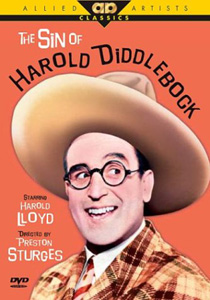
In the middle of November, Jonathan Franzen gave Alice Munro a
rave review. Not just Ms
Munro's latest collection of stories, Runaway, but Ms Munro's entire
career. I thought I had better investigate.
Now, Alice Munro's stories have been appearing in The New
Yorker for years, but with few exceptions - possibly only one - I've been
ignoring them for years. They're usually rather long, by New Yorker
standards, and so they require the kind of commitment that I save for books.
They're often set in Ontario. I have never been to Ontario, but if Ms Munro's
stories are any indication, subscribers to The New Yorker must have been
thin on the ground forty and more years ago, when the typical Munro protagonist
was a girl or just-married. There is always at least one character who would
glare at you, the reader, and demand to know why you are wasting your time on
"make believe." I may not have been to Ontario, but my mother was one of those
characters, and I'm still touchy about being told to go out and play or to do
something useful.
Now that I've read not one but two collections, Runaway
and its much-admired predecessor, Hateship, Friendship, Courtship,
Loveship, Marriage (Knopf, 2004 and Vintage, 2001), I know enough to
know better than to attempt any kind of summing up, to presume to distill the
experience of reading Alice Munro into a few paragraphs. That sort of thing will
have to wait. This is just a beginning, something to come back to as the stories
age and darken in my mind. The first thing to say is that Mr Franzen's sketch of
the almost invariable Munro back-story, some part of which figures in each
story, can't be improved upon -
Here's the story that Munro keeps telling: A bright, sexually avid girl grows up in
rural Ontario without much money, her mother is sickly or dead,
her father is a schoolteacher whose second wife is problematic,
and the girl, as soon as she can, escapes from the hinterland by
way of a scholarship or some decisive self-interested act. She
marries young, moves to British Columbia, raises kids, and is
far from blameless in the breakup of her marriage. She may have
success as an actress or a writer or a TV personality; she has
romantic adventures. When, inevitably, she returns to Ontario,
she finds the landscape of her youth unsettlingly altered.
Although she was the one who abandoned the place, it's a great
blow to her narcissism that she isn't warmly welcomed back --
that the world of her youth, with its older-fashioned manners
and mores, now sits in judgment on the modern choices she has
made. Simply by trying to survive as a whole and independent
person, she has incurred painful losses and dislocations; she
has caused harm.
- except, of course, by Ms Munro herself. The miracle of it all
is that knowing this template in advance actually makes each individual story
richer. The variations are always intriguing. The first marriage, for example,
doesn't always break up. In "What Is Remembered" (HFCLM), you're
surprised that it doesn't. Meriel and Pierre are still young when Pierre's
childhood friend, Jonas, dies, and Meriel has a bit of an adventure after the
funeral. Pierre is not a sympathetic character, but then the husbands in Ms
Munro's stories rarely are. Few are as unlikable as Mr Vorguilla, in "Queenie" (HFCLM),
but all are presented in the full flower of masculine egoism. Years later, after
Pierre dies a natural death (which his wilder friend certainly did not), Meriel
remembers, for the first time, that the man with whom she had spent a few
illicit hours refused to kiss her goodbye. Had she remembered it earlier, she
muses, her marriage might not have endured, as if responding to the lover's
challenging denial were the only way to grow. Most of Ms Munro's women make the
mistake of so responding. They may find happier second husbands, but not in the
men for whom they leave their first.
If I linger over "What Is Remembered," it's because of a
paragraph that comes early in the story.
Young husbands were stern, in those days. Just a short time
before, they had been suitors, almost figures of fun, knock-kneed and desperate
in their sexual agonies. Now, bedded down, they turned resolute and
disapproving. Off to work every morning, clean-shaven, youthful necks in knotted
ties, days spent in unknown labors, home again at suppertime to take a critical
glance at the evening meal and to shake out the newspaper, hold it up between
themselves and the muddle of the kitchen, the ailments and emotions, the babies.
What a lot they had to learn, so quickly. How to kowtow to bosses and how to
manage wives. How to be authoritative about mortgages, retaining walls, lawn
grass, drains, politics, as well as the jobs that had to maintain their families
for the next quarter of a century. It was the women, then, who could slip back -
during the daytime hours, and always allowing for the stunning responsibility
that had been landed on them, in the matter of the children - into a kind of
second adolescence. A lightening of spirits when the husbands departed. Dreamy
rebellion, subversive get-togethers, laughing fits that were a throwback to high
school, mushrooming between the walls that the husband was paying for, in the
hours when he wasn't there.
This becomes more extraordinary every time I go over it. I'd
give anything to have written "youthful necks in knotted ties" - it sounds like
Wallace Stevens - and the combination of "how to kowtow to bosses" with "how to
manage wives" produces a vital insight of almost scientific weight: it
captures exactly how
young married men used to see their worlds, and in many cases still do. The
resentment and contempt that must have accompanied these observations when they
were fresh has been softened and detoxified, but their outline remains
palpable.
The failings of women are hardly elided; on the contrary,
they're seen in such high detail that at first it's easy to mistake them for
more neutral characteristics. As I made my way through Runaway, I came to
see that the heroines who were having such hard times were hardly angels. The
trio of "Juliet" stories in Runaway give the best example. (They appeared
all together in The New Yorker's Summer Fiction Issue, where, once again,
I didn't read them; when I was cutting up old magazines the other day I was
rather repelled by the dirty photographs. I still assume that my long-late
great-aunt Marion is a subscriber.) In the first story, Juliet is a young woman
about to pay a visit to a married man whom she met on a cross-country train;
their meeting, deeply enfolded in what might have been another story altogether,
takes up a good deal of the tale, and the rest covers Juliet's arrival, some
time later, in the remote coastal town where the man is a fisherman. Because
Juliet is intelligent and well-behaved, she has our sympathy from the start, and
she never really does anything to lose it. After all, what's so bad about giving
a pushy stranger the brush-off on a long train ride. What's wrong about
cherishing the letter that another, rather desirable, stranger writes to her
when she gets to where she is going? And why not take the opportunity paying him
a visit before she leaves his part of Canada forever? Having read all three
stories, I'd have to say: more than you'd think.
What's wrong leaks out slowly, and not in "Chance," the first
of the stories, the events of which I've lightly summarized. It begins to
surface in the second story, "Soon," which takes place four years later. Juliet
has had a child, Penelope, with the stranger - his name is Eric - but they have
not married. This is not a problem for Juliet, but when she pays a visit to her
parents, back in Ontario, when Penelope is a little over a year old, she finds
that her marital status has had repercussions for her father. He has in fact
quit his job as a schoolteacher, and taken up market-gardening.
"Did it have anything all to do with me?"
"I quit because I got goddamn sick of my neck always in that
noose. I was on the point of quitting for years."
"It had nothing to do with me?"
"All right," Sam said. "I got into an argument. There were
things said."
"What things?"
"You don't need to know.
"And don't worry," he said after a moment. "They didn't fire
me. They couldn't have fired me. There are rules. It's like I told you - I was
ready to go anyway."
"But you don't realize," said Juliet. "You don't realize.
You don't realize just how stupid this is and what a disgusting place
this is to live in, where people say that kind of thing, and how if I told
people I know this, they wouldn't believe it. It would seem like a joke."
"Well. Unfortunately, your mother and I don't live where you
live. Here is where we live. Does that fellow of yours think it's a joke too? I
don't want to talk any more about this tonight, I'm going to bed. I'm going to
look in on Mother and then I'm going to bed."
"The passenger train - ," said Juliet with continued energy,
even scorn. "It does still stop here. Doesn't it? You didn't want me getting off
here. Did you?"
On his way out of the room, her father did not answer.
Juliet is alluding to the fact that her parents arranged to
pick her up at a station twenty miles away. Now she understands why, and she's
angry about it. One's first reaction might be to sympathize with Juliet. It is
the late Sixties, and Juliet is simply a woman struggling for personal freedom.
Her parent's townspeople are narrow-minded and old-fashioned; they're
conventional and probably hypocritical. But by the end of the "Silence," the
last of the three stories, I was inclined to reconsider my judgment, if not my
sympathies. In her anger, she lumps her father together with his antagonists:
she raises her voice at him. Having taken a step toward liberation, she
expects everyone else to follow.
Does this make Juliet "bad" or unsympathetic? No more so than
any of us, and that may be the miracle of Alice Munro's writing. If you are
expecting dramatic confrontations between good and evil, she will certainly
disappoint you. Her dramatic confrontations involve people in whom virtue and
vice are admixed to much the same degree, and our preferring one to another -
preferring Juliet, in this case, to whomever it was that Sam got into a fight
with - then we are only revealing a preference among vices. We prefer
self-centered intelligence to hidebound unreflectiveness. We prefer
individuality to tradition, and - this is where our vice comes in - we have
nothing but scorn for those who think differently. We don't want to believe that
Juliet ought to be held responsible for the end of her father's teaching career.
She is certainly not solely responsible. But she shares in the responsibility.
Her unwillingness to acknowledge this stands in even higher relief at the end of
the story, when, looking back, she remembers with pain her blocked inability to
give her dying mother the small comfort of a simple "Yes."
So it is not altogether surprising to discover, a few pages
into "Silence," that the now grown Penelope does not want to see Juliet for the
time being. Juliet has become a successful television personage in the Vancouver
area, and a widow of sorts as well, after Eric's death in a storm at sea. She
believes that she and Penelope are very close, and is more puzzled than anything
else when Penelope decides to spend some time at the Spiritual Balance Centre on
Denman Island. Six months later, Juliet insists on a visit, but when she arrives
at the Centre, an officious woman with a baloney smile tells her that Penelope
"isn't there."
In the wake of September 11, 2001, my daughter and I hit a
rough patch that it took me a long time to get out of, or, perhaps I should say,
even to begin to figure out how to get out of. I had to learn, among other things, something
very bitter: that, although I love my daughter, I haven't listened to her very
well, and in fact I have often wished that she would say altogether different
things. And this had to change. I suspect that this is common among strong-minded parents, but don't
think I'm letting myself off. I am in any case grateful to have had the chance
at making a beginning. I say all this because Juliet is denied that chance, and
if I had read her story during the rough times, it would have killed me. That's
to say that it would have been intolerable; I might have given up on my love for
my daughter. Juliet has done nothing specific to push her daughter away, but in
taking her company and her affection for granted, she has perhaps ceased to be
at all attractive. We soon learn not to care for people who believe, quite
wrongly, that they have us all figured out.
Alice Munro's stories strike a note of ambivalence that is easy
to mistake for inactivity, but once you have heard it, you will hear it sounding
everywhere.






